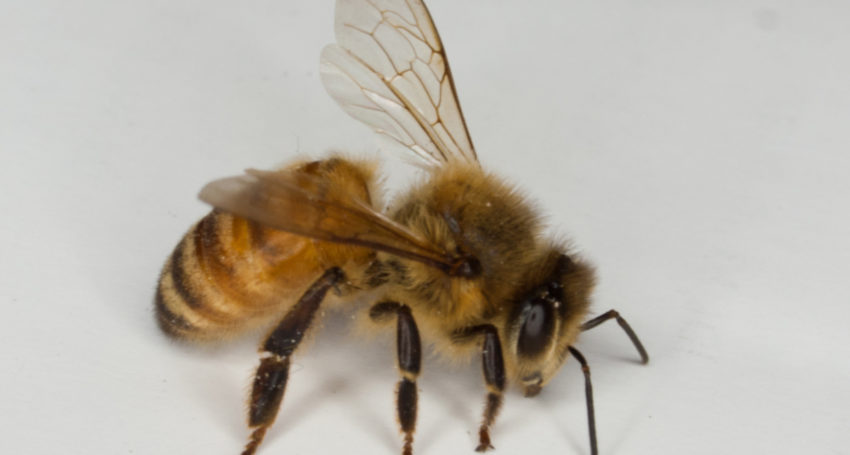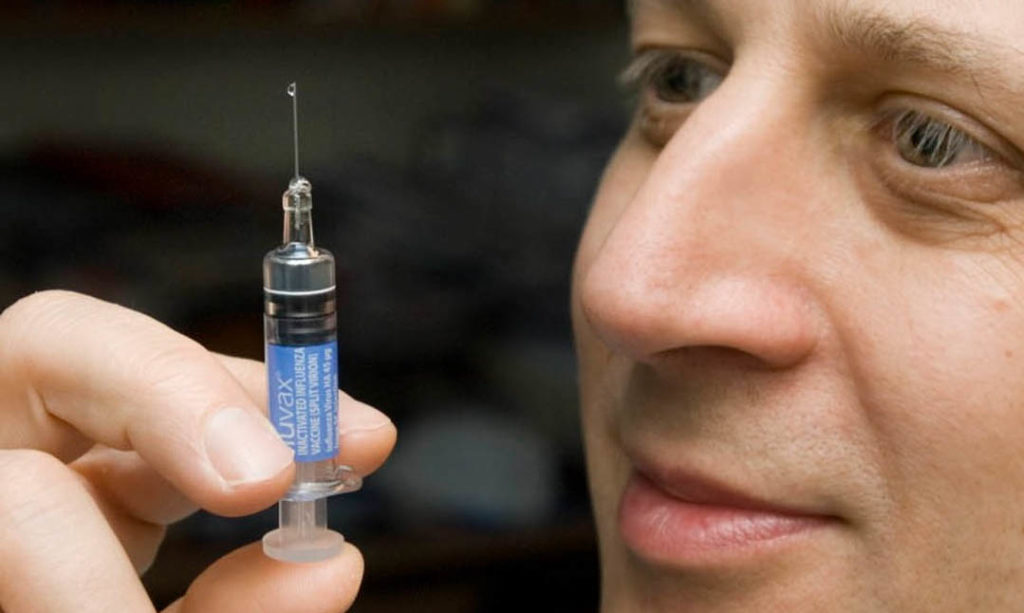Boost for bee sting vaccine
Health & Medical
A powerful bee sting vaccine designed to eliminate the risk of a severe allergic reaction to European honeybee venom has successfully completed a human trial in South Australia.

Sign up to receive notifications about new stories in this category.
Thank you for subscribing to story notifications.

The vaccine used a unique sugar adjuvant, called Advax, which was developed in Adelaide by Vaxine Pty Ltd, to help the body neutralise bee venom.
Researchers hope the boosted vaccine could lead to shorter and more effective bee sting immunotherapy for people with a severe allergy.
Flinders University Professor and research director of Vaxine Pty Ltd Nikolai Petrovsky said the adjunct enhanced the bee sting vaccine and prevented allergic symptoms.
Professor Petrovsky was among researchers from Flinders University and the Royal Adelaide Hospital who conducted the European honeybee sting vaccine trial using Advax adjuvant on 27 adults.
“Our technology is like adding a turbocharger to a car and in this case makes the bee allergy vaccine much more powerful, allowing the immune system to better neutralise the bee venom and prevent allergic symptoms,” Professor Petrovsky, pictured below, said.
“If someone has a very severe bee sting allergy then they need to keep getting injections for their whole life. It could be one injection a month, so you can imagine that’s an enormous number of potential injections, it could be in the hundreds.
“We had to test the hypothesis that the adjuvant would improve the vaccine – we didn’t want to leave people exposed, so we actually ended up giving people the same number of injections as they would have with the old treatment and we were looking to see if they were better protected.
“The antibodies that we measured stayed much higher for much longer in people who had the adjuvant. So that’s why we’re excited that this might mean we can significantly increase the duration between the allergy shots if we use that as a marker.”
The honeybee is the most common cause of allergic insect reaction in Australia with about 2.8 per cent of the population having an allergic reaction beyond localised swelling after a bee sting.

Vaxine research director Nikolai Petrovsky has developed a unique adjuvant that acts as a turbocharger for vaccines.
Bee sting anaphylaxis kills about two Australians each year. Those living with severe bee sting allergies have to carry an epinephrine autoinjector (EpiPen) with them at all times.
“And sometimes it’s not enough. One EpiPen when you have a severe reaction may temporarily reverse the allergy for a few minutes but then you go back into the reaction again. So it’s not like the adrenaline is like a permanent fix,” Professor Petrovsky said.
For this reason, Professor Petrovsky said allergy sufferers could undergo commercial bee venom therapy.
For people with a moderate allergy, bee sting desensitisation can take up to five years. But Professor Petrovsky said it was recommended people with severe reactions have the allergy injections every month for their entire lives.
He said the new Advax adjuvant vaccine had the potential to extend the time between injections.
Through the trial, researchers injected patients with bee venom before measuring venom antibodies in patients’ blood to test the effectiveness of the adjuvant-infused bee sting vaccine.
Each patient was trialled for three years and received the vaccine every week for the first 12 weeks and then once a month.
“A number of people also got stung through the study, they were in the wrong place at the wrong time. I think one was a bee keeper and he got stung about 55 times through the course,” Professor Petrovsky said.
“But fortunately, no one in the study had to use adrenaline, so obviously the vaccine they were using was working.”
While not all of the patients were stung by bees, Professor Petrovsky said that was the next step in the bee vaccine trial.
“The next trial we’ll look at how long can we stretch those intervals out and to what extent can we reduce the injections”
The Advax adjuvant, which enhances the bee sting vaccines, has also been used to develop vaccines for seasonal and pandemic influenza, hepatitis, malaria, Alzheimers disease, cancer and other diseases.
Jump to next article



